November 4, 2025, is General Election Day. Unlike the Primary Election we detailed for you in May, the General Election ballot includes Unaffiliated candidates alongside those from the Democrat and Republican parties. Additionally, unaffiliated voters are eligible vote in this election.
This year, the biggest race will be to determine the next leader of the Garden State. While Governor is a major contest, they say it is the local government positions that have the most impact on residents’ day-to-day life. There are many races for you to weigh in on this year, including General Assembly, County Clerk, Board of County Commissioners, Princeton Council and Princeton Board of Education. We bring you details here on every candidate on the ballot, to help you vote informed. (You can find out about the gubernatorial candidates and their views on matters most impacting Mercer County in our companion article, Candidates for NJ Governor: Who Will Be Best for Mercer County?)
VOTING OPTIONS
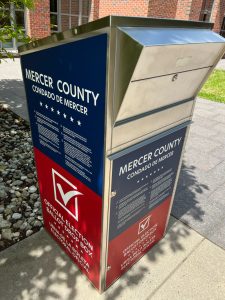 Are you inclined to Vote by Mail? If you are not already signed up to vote in that manner, and prefer to do so, you can fill out this form and return it in person, or mail it back to 209 S. Broad St., 2nd floor, PO Box 8068, Trenton NJ 08650. A ballot will then be mailed for you to fill out.
Are you inclined to Vote by Mail? If you are not already signed up to vote in that manner, and prefer to do so, you can fill out this form and return it in person, or mail it back to 209 S. Broad St., 2nd floor, PO Box 8068, Trenton NJ 08650. A ballot will then be mailed for you to fill out.
Once completed, Vote by Mail ballots must be placed in a secure drop box, postmarked or returned in person to the Board of Elections office by 8pm on November 4th. If being returned via drop box, in Princeton those can be found at the Municipal Building, 400 Witherspoon Street, as well as Princeton University Dinky Station/ Wawa, 152 Alexander Street. All other drop box locations can be found here. Note, the Hightstown drop box location has changed.
To ensure your vote was received, you can always track your ballot here.
VOTING DAYS AND TIMES
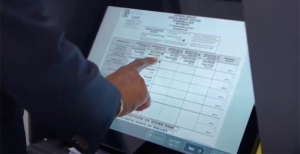 If you prefer to vote in person, what are your options? This year, in-person early voting begins on Saturday, October 25, 2025, and is available through Sunday, November 2, 2025. Polls will be open Monday–Saturday from 10:00 a.m. to 8:00 p.m. and Sunday from 10:00 a.m.to 6:00 p.m.
If you prefer to vote in person, what are your options? This year, in-person early voting begins on Saturday, October 25, 2025, and is available through Sunday, November 2, 2025. Polls will be open Monday–Saturday from 10:00 a.m. to 8:00 p.m. and Sunday from 10:00 a.m.to 6:00 p.m.
You are eligible to vote at any early polling location, if one is more convenient to your work, daycare or family needs. Note, there is a new Early Voting location in West Windsor. The eight locations are:
Mercer County Library – Hickory Corner Branch, 138 Hickory Corner Road, East Windsor, NJ
Mercer County Office Park, 1440 Parkside Ave, Ewing, NJ 08638
Colonial Firehouse Company, 801 Kuser Road, Hamilton, NJ, 08619
Mercer County Library – Lawrence Headquarters Branch, 2751 Brunswick Pike (at Darrah Lane), Lawrence, NJ
Pennington Fire Company, 120 Broemel Place, Pennington, NJ
Princeton Municipal Building – Community Room, 400 Witherspoon Street, Princeton, NJ
Trenton Firehouse Headquarters, 244 Perry Street, Trenton, NJ
NEW! Mercer County Library -West Windsor Branch, 333 N Post Road, West Windsor, NJ
You can also choose to vote in person on Election Day, November 4th, with polls open 6am to 8pm. You have one specific polling location for election day, which is detailed on the front of the sample ballot which should have been recently mailed to your home. You can also click here to find it now.
WHO IS ON THE BALLOT?
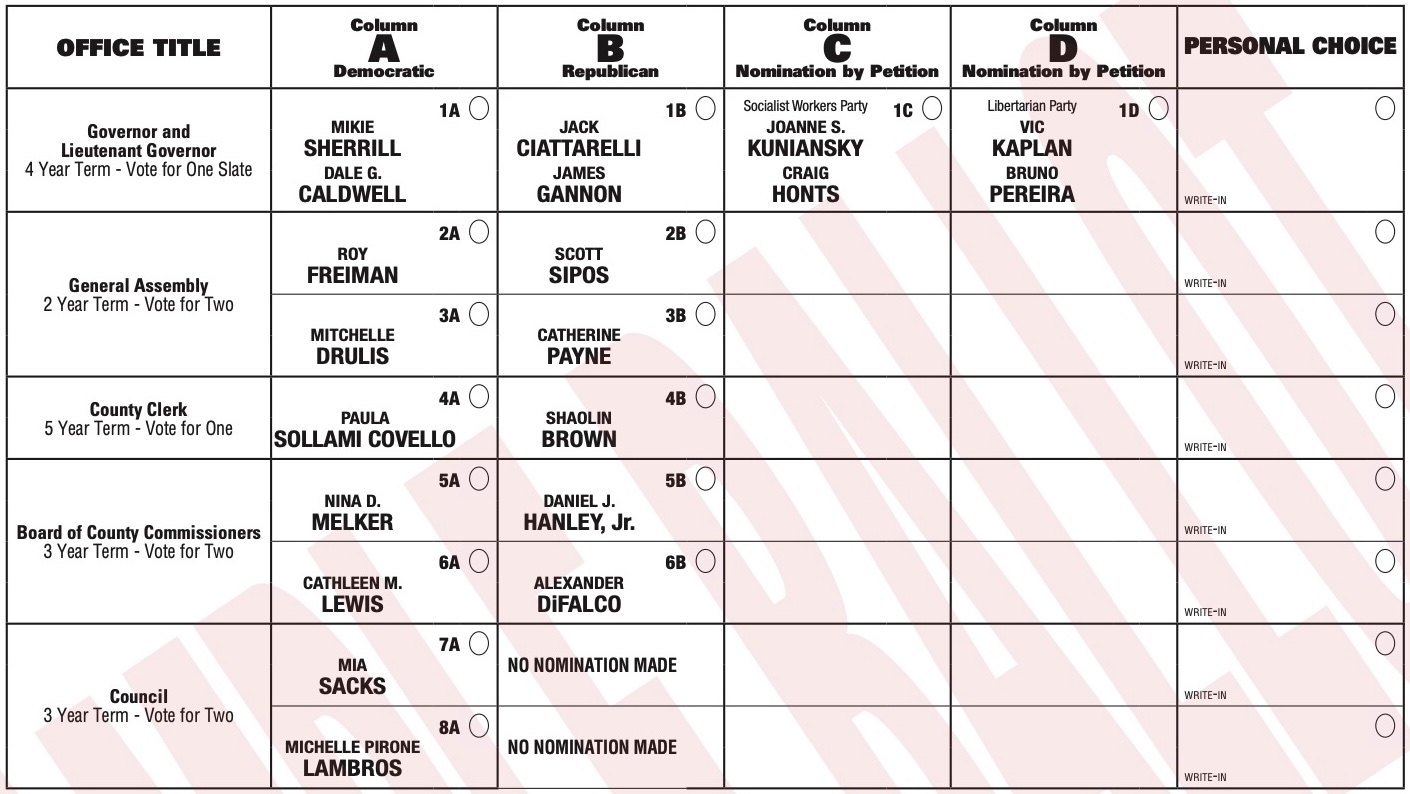
GENERAL ASSEMBLY CANDIDATES
As it is every two years, the 80-member New Jersey Assembly is up for grabs this November. For 16th Legislative District (LD16) voters in Mercer County (Princeton voters), there are two incumbents and two challengers running. Voters will choose two, to serve a two-year term.
 Roy Freiman (D) is running for his fifth term as LD16 Assemblyman, bringing with him previous experience as an executive at Prudential Financial. He has been proud to represent Princeton, a town where he says a richness of “history, education, innovation, and vibe help to create its unique charm and challenges.”
Roy Freiman (D) is running for his fifth term as LD16 Assemblyman, bringing with him previous experience as an executive at Prudential Financial. He has been proud to represent Princeton, a town where he says a richness of “history, education, innovation, and vibe help to create its unique charm and challenges.”
Freiman says he understands Princeton’s focus on affordability, which he will stay involved with if elected to another term.
“Princeton understands the importance of having a community that is open to all. That’s why I’ve worked to protect school funding, provide real property tax relief to seniors, homeowners, and renters through programs like Anchor and StayNJ, and strengthen government support for seniors and working families. My focus, along with my running mate, Assemblywoman Mitchelle Drulis, is to make sure Princeton remains a place where people are able to live, work, raise their families, and enjoy the beauty that is Central Jersey.”
 Mitchelle Drulis (D) is running for her second term in the Assembly. She brings with her more than two decades of experience working on campaigns and alongside elected political leaders. Keeping Princeton, and New Jersey, affordable, livable and strong are key issues for her going forward.
Mitchelle Drulis (D) is running for her second term in the Assembly. She brings with her more than two decades of experience working on campaigns and alongside elected political leaders. Keeping Princeton, and New Jersey, affordable, livable and strong are key issues for her going forward.
“Affordability isn’t just a talking point. Whether it is property taxes, healthcare costs, or the cost of a night out with your family, it is something Mercer County families, even in Princeton, are feeling every day. Federal funding cuts to essential programs have only made things harder, forcing local governments and non-profits to stretch thinner to meet the growing needs.”
Drulis says she’s worked hard with her counterparts, Assemblyman Freiman and Senator Zwicker, to bring money into the district – citing over $1.3 million to Princeton alone.
“This funding goes directly into projects that matter including improvements to Princeton’s sewer system to ensure that core infrastructure keeps pace with the community, protecting our historic sites such as the Princeton Battlefield, and cultural resources like McCarter Theater, and supporting Princeton Food Pantry which is seeing an increase in demand. And of course, making sure that programs like Stay NJ, Anchor and Senior Freeze which provide property tax relief for seniors, homeowners and renters are funded and can continue.”
 Scott Sipos (R) is running for his first term in the Assembly. He is currently in his second term on the Raritan Township Committee, having served as its mayor in 2024. Sipos is a teacher, who led many negotiations as its union’s president, and strong schools are a top issue of his campaign.
Scott Sipos (R) is running for his first term in the Assembly. He is currently in his second term on the Raritan Township Committee, having served as its mayor in 2024. Sipos is a teacher, who led many negotiations as its union’s president, and strong schools are a top issue of his campaign.
“The most urgent issue facing Mercer County residents is the ongoing school funding crisis, and its deep impact on affordability, local property taxes, and the quality of public education. As a father and educator, I’ve seen firsthand how the flawed school funding formula has stripped millions of dollars from our local schools in LD16, forcing painful cuts to teachers, programs, and services that our children rely on. This isn’t just a school issue; it’s a community issue. When the state pulls funding, the burden shifts to local property taxpayers. That’s unacceptable, especially at a time when families are already struggling with high costs of living.”
Sipos intends to counter what has taken place while the current Assembly people have been in office.
“They have failed to take meaningful action. They’ve watched as schools in our district suffered, offering short-term patches instead of real, long-term solutions. We can’t keep kicking the can down the road while our schools and taxpayers pay the price. In Trenton, I will fight to overhaul the broken funding formula and ensure that every student in LD16 gets their fair share. Our kids deserve better. Our communities deserve better. And it’s time for real leadership to deliver it,” Sipos states.
 Catherine Payne (R) is running for her first term in the Assembly, currently serving as Deputy Mayor of Hillsborough. She is also an IT/Operations professional who has worked to modernize and make systems more efficient in both the public and private sectors. She is eager to find better ways to fund New Jersey’s schools.
Catherine Payne (R) is running for her first term in the Assembly, currently serving as Deputy Mayor of Hillsborough. She is also an IT/Operations professional who has worked to modernize and make systems more efficient in both the public and private sectors. She is eager to find better ways to fund New Jersey’s schools.
“The most urgent issue for Mercer County and LD16 right now is fixing the broken school funding formula, which has slashed millions from our local school budgets and placed an unfair burden on homeowners through rising property taxes. This funding crisis is not only hurting our students, it is threatening the affordability of our entire region. I’ve spoken with families, teachers, and school officials across LD16 who are frustrated and overwhelmed. They’ve seen programs cut, staff laid off, and class sizes grow, all while property taxes continue to rise. It’s clear the current funding model is not working for our community.”
Payne says efforts made thus far have not been good enough.
“Roy Freiman and Mitchelle Drulis have done nothing to deliver a long-term fix. They’ve stood by while our schools were gutted and offered no plan to restore fairness or stability to the system. Mercer County deserves better than empty promises and political theater. As your Assemblywoman, I will prioritize a complete reform of the school funding formula, so that our families aren’t forced to choose between a quality education and the ability to stay in their homes. The time for talk is over, it’s time for action.”
COUNTY CLERK
County Clerk is elected every five years. This year, there is one incumbent and one challenger running for the seat. This office files and records documents for things such as real estate ownership and transfer, County and Veteran ID Cards, U.S. Passport applications, small business trade name registration and more. It is also one of three county offices that oversees elections. This position has a five year term.
 Paula Sollami Covello (D) is running for her fifth term as County Clerk, where she feels her experience as the first Executive Director of the NJ School Ethics Commissions, a Department of Education attorney and an Assistant County Counsel have benefited her. She is running to keep her position because she feels her experience matters as voting rights are under attack.
Paula Sollami Covello (D) is running for her fifth term as County Clerk, where she feels her experience as the first Executive Director of the NJ School Ethics Commissions, a Department of Education attorney and an Assistant County Counsel have benefited her. She is running to keep her position because she feels her experience matters as voting rights are under attack.
“There are many initiatives and policies that are limiting voter participation, and I believe this is the time in our history to fight to make sure that every voice is heard. Recent initiatives from Washington seek to restrict or limit voter participation by imposing REAL ID requirements on voters, requiring voters’ names to match their birth certificates and recent policies seek to eliminate vote-by-mail altogether. I would oppose any policy that restricts the ability to vote in our society. As a former leader of NJ’s County Clerks, I believe I am well qualified to continue to serve as Mercer County Clerk and fight against these suppression efforts.
Additionally, Sollami Covello says her accomplishments are a testament to what more she can do for the county.
“As County Clerk, I have expanded Mercer County’s vote by mail list to over 45,000 voters, one of the highest percentages in the State. I promised and delivered on our county’s purchase of a verified voting system, as we purchased voting machines with a paper trail for auditing purposes. I have also expanded outreach services for passports and Veteran IDs by opening a satellite office in Hamilton Township and bringing our passport service days to the various municipalities throughout Mercer County. Further, I have eliminated backlogs in property recording and implemented online property search systems. I have scanned back most property records in the County Clerk’s Office and plan to complete this project. Most importantly, I have educated the public in multiple languages about all of my Office’s services so that everyone can vote or learn about the availability of the many government services the Clerk’s Office offers.”
 Shaolin Brown (R) is running for her first term as County Clerk. She says her years as a community advocate, organizing town halls, supporting local small business and childcare providers and assisting law firms and nonprofits, have provided experience that will support her in this role.
Shaolin Brown (R) is running for her first term as County Clerk. She says her years as a community advocate, organizing town halls, supporting local small business and childcare providers and assisting law firms and nonprofits, have provided experience that will support her in this role.
“Through this work, I have gained hands-on experience with the challenges residents face and with the election process itself. My passion is building trust between government and the community, ensuring that Mercer County’s records, property deeds, and elections are secure, transparent, and accessible to all.”
Brown says restoring trust in the election process is the most urgent need.
“As County Clerk, I will ensure every election is run with transparency and full compliance with New Jersey’s Title 19 election laws. I will implement stronger chain-of-custody protocols, provide clear and accessible voter information, and record ballot draws on video for public review. These measures will help every voter know their ballot is counted accurately and their voice truly matters.”
MERCER COUNTY BOARD OF COMMISSIONERS
The legislative branch of county government, Mercer County Board of Commissioners, has four candidates vying for 2 open seats. Two incumbents are running to keep their seats against two newcomers. The part-time role is for a three-year term.
 Nina Melker (D) is running for her third full term as County Commissioner (she took over a vacated seat in 2018). She is grateful to bring her experience as a banker to help with county finances. What does Melker think is most urgent for Mercer County residents, should she serve a third term?
Nina Melker (D) is running for her third full term as County Commissioner (she took over a vacated seat in 2018). She is grateful to bring her experience as a banker to help with county finances. What does Melker think is most urgent for Mercer County residents, should she serve a third term?
“Working to maintain affordability for residents and ensuring we can continue to meet the needs of our most vulnerable populations throughout Mercer County,” she says.
 Cathleen Lewis (D) is running for her second term as County Commissioner, after serving 10 years on Lawrence Council (two as their mayor). She hopes to build on the momentum that has been underway with County Executive Dan Benson, focusing on services to residents. In a new term, Lewis hopes to continue county/municipal collaborations and invest in economic development.
Cathleen Lewis (D) is running for her second term as County Commissioner, after serving 10 years on Lawrence Council (two as their mayor). She hopes to build on the momentum that has been underway with County Executive Dan Benson, focusing on services to residents. In a new term, Lewis hopes to continue county/municipal collaborations and invest in economic development.
“Our work has begun with investment in compatible emergency response systems between our towns and the county, strengthening response while saving taxpayers money,” Lewis says, adding, “Through our new Division of Travel and Tourism we can effectively capitalize on the 250thanniversary of the birth of our nation, bringing in powerful economic dollars and building long-term investment in our local businesses.
Lewis also aims to develop clean transportation options and invest in safer roadways with accountability continuing as a primary concern for.
“This last year has brought open, collaborative conversations at our commissioner meetings. Not only do I want to see that continue, I think we can expand our efforts to ensure we are sharing information and ideas consistently.”
 Daniel Hanley, Jr. (R) is running for his first term as County Commissioner. The son of an immigrant mother, he has immersed himself in his Mercer County community through roles including treasurer of the Hopewell Valley YMCA, treasurer for Hopewell Valley Lacrosse, and as treasurer for the Hopewell Valley High School Class of 2025 PTO. A Certified Financial Planner, Hanley hopes to help safeguard the county’s fiscal future using his experiences guiding people through an ever-changing economy. As a County Commissioner, Hanley is ready to jump right in to mitigate increasing property taxes, suggesting zero-based budgeting and non-property-tax revenue streams to offset the need.
Daniel Hanley, Jr. (R) is running for his first term as County Commissioner. The son of an immigrant mother, he has immersed himself in his Mercer County community through roles including treasurer of the Hopewell Valley YMCA, treasurer for Hopewell Valley Lacrosse, and as treasurer for the Hopewell Valley High School Class of 2025 PTO. A Certified Financial Planner, Hanley hopes to help safeguard the county’s fiscal future using his experiences guiding people through an ever-changing economy. As a County Commissioner, Hanley is ready to jump right in to mitigate increasing property taxes, suggesting zero-based budgeting and non-property-tax revenue streams to offset the need.
“New Jersey is already infamous for having some of the highest property tax rates in the nation, and as assessments and local, county, and school budgets continue to climb, this reality hits Mercer County households particularly hard,” Hanley explains. “The continuous rise in property taxes is more than just a line item on a budget; it is a fundamental quality-of-life issue. It forces long-time residents to consider leaving the community they helped build, making Mercer County less affordable and less diverse. Furthermore, it acts as a major deterrent to prospective new businesses and residents, ultimately harming our county’s economic competitiveness and growth.”
 Alexander DiFalco (R) currently serves as Vice Chair of the Mercer County Young Republicans and works with Jersey First as a grassroots advocate while he completes his degree in history, law, and politics at The College of New Jersey. Hoping to represent the next generation of voters, DiFalco aims to bring his hands-on experience with campaigns at the local, county, and state levels to bring down Mercer County property taxes.
Alexander DiFalco (R) currently serves as Vice Chair of the Mercer County Young Republicans and works with Jersey First as a grassroots advocate while he completes his degree in history, law, and politics at The College of New Jersey. Hoping to represent the next generation of voters, DiFalco aims to bring his hands-on experience with campaigns at the local, county, and state levels to bring down Mercer County property taxes.
“In 2024, the Mercer County Board of Commissioners approved a sweeping tax increase that fell disproportionately on certain towns. Lawrence and Hopewell saw increases of 5 to 6 percent. Hamilton and Robbinsville faced increases of 12 to 15 percent. East Windsor and Ewing had crushing increases of 18 to 22 percent. Princeton saw an average increase of 12 percent from 2023 to 2024. Such steep and uneven increases place the heaviest burden on families least able to afford them, including many in Trenton, Ewing, Lawrence, and Hamilton. For young growing families and disadvantaged residents, these hikes are not just numbers on a bill; they threaten their ability to pay for housing, food, and utilities. Tax increases must always be reasonable, equitable, and justified.”
DiFalco suggests using part of the county’s annual budget surplus to provide immediate relief across Mercer County through a large-scale tax break.
PRINCETON COUNCIL
There are two candidates vying for two open seats on Princeton Council, running for three-year terms on the six-member Council. Both are incumbents, running unopposed. There is no minimum vote required for them to win, but you can learn more here about who they are and what they stand for.
 Mia Sacks (D) is running for her third term on Princeton Council and looks forward to building on the efforts she has made.
Mia Sacks (D) is running for her third term on Princeton Council and looks forward to building on the efforts she has made.
“Over the past two terms, I’ve worked hard to invest in our community’s future—protecting environmentally sensitive open spaces, strengthening local infrastructure, fostering smart growth, and making sure our public schools have the resources they need. As I seek a third term, I will work to build upon that progress: expanding housing opportunities to ensure that residents of all ages and income levels can remain in our community; and encouraging growth in a way that honors our town’s history while preparing us for the future. I will continue to advance resiliency and climate change mitigation initiatives to safeguard our environment and infrastructure. Just as importantly, I’m committed to streamlining municipal operations to deliver services more efficiently and cost-effectively—ensuring that every taxpayer dollar is used wisely as we plan for a sustainable, inclusive, and financially secure future.
In a time of increasing political polarization, the need for civil discourse and genuine dialogue is imperative. Our community thrives when we come together to listen, learn, and find common ground — even when we disagree. This commitment to civility is essential to preserving the unity of our town and the strength of our democracy.”
 Michelle Pirone Lambros (D) is running for her third term on Princeton Council, where she hopes to continue focusing on economic development, affordability and sustainability. Pirone Lambros says that growing the commercial tax base helps to support nonprofit and cultural organizations while offsetting the residential tax burden.
Michelle Pirone Lambros (D) is running for her third term on Princeton Council, where she hopes to continue focusing on economic development, affordability and sustainability. Pirone Lambros says that growing the commercial tax base helps to support nonprofit and cultural organizations while offsetting the residential tax burden.
“We are committed to making our town welcoming to businesses of all sizes, aiming to retain the unique small businesses that define our community, while also attracting and supporting larger establishments that add vibrancy. My work with our special improvement district, Experience Princeton, is really just beginning as the foundation has been laid, and now the fruition of this will be realized over the next few years,” she details. Pirone Lambros is also proud of the work done on the Affordable Housing, Planning and Redevelopment committee to expand opportunities for housing development and will continue through the 4th round of affordable housing.
“To further our sustainability goals, we are looking to expand our municipal bus service, improving transportation for residents, visitors, students, and employees. Our efforts also include enhancing our bike and pedestrian infrastructure, implementing traffic calming measures, improving our streetscapes, and expanding parking facilities.”
PRINCETON PUBLIC SCHOOLS BOARD OF EDUCATION
There are three candidates vying for the three open seats on Princeton Public School’s Board of Education. Two incumbents and one repeat candidate are running uncontested, but your vote signals confidence to serve the three-year term. To know them a little better, each candidate shares why they are running and what their priority issue is for the new year.
 Erica Snyder is running for her second attempt to gain a seat on the Board of Education.
Erica Snyder is running for her second attempt to gain a seat on the Board of Education.
“Despite the initial setback, I’m more determined than ever to serve our community. I have another year under my belt as a parent in the district, including a full year at the middle school to help shape my perspective. I’ve also received overwhelming support from community members who share my vision for a better school district. This enthusiasm has reinforced my decision to run again.”
Snyder is still hoping to work towards closing educational gaps and improving district communication and is eager to get involved with supporting the new leader of PPS, Dr. Michael LaSusa.
“My top priority would be to ensure he has what he needs to make changes in the district that work to support all students receiving the best education in a safe learning environment.

Dafna Kendal is the first Board of Education member to run for a fourth term. Feeling there is still important work to do, she looks forward to another three years.
“Efforts in curriculum, special education, and facilities, takes years to move from idea to reality, and I would like to see them through. I’m also running because stability is important. With a new superintendent, major facilities work, and state-level pressures on budgets, having experienced leadership on the Board helps provide continuity. At the same time, I see my role as supporting newer board members so that the district benefits from both experience and fresh perspectives.”
Kendal plans to continue keeping students top of mind.
“My top priority is working to ensure that every student has access to strong academic and support programs that meet their needs. That means strengthening course offerings, improving special education resources, and making thoughtful budget decisions that ensure that teaching and learning are always at the forefront.”
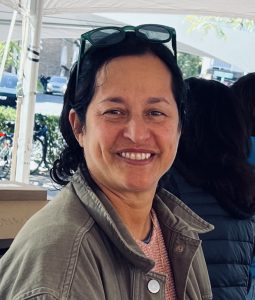 Susan Kanter is running for her third term on the Board of Education, looking forward to what it will bring.
Susan Kanter is running for her third term on the Board of Education, looking forward to what it will bring.
“In serving on the Board, students have always been and will continue to be my prime focus, both in terms of meeting educational expectations and their emotional needs. I especially look forward to supporting our new Superintendent in meeting these goals, and ensuring Princeton Public Schools can ensure all our students have the tools they need for success.”
In her next term, Kanter recognizes there will be both unique opportunities as well as challenges.
“I do not want to minimize the challenges this district will face as we navigate Princeton’s expected growth and other potential changes to our financial model. In my first two terms I served as co-chair of the Operations Committee, as well as a member and co-chair of the Long-Term Planning Committee. I hope to continue to use this experience to focus on both long-term and short-term financial planning, implementing referenda with fidelity, as well as supporting building maintenance and technology needs. I believe my experience and enthusiasm on these committees as well as my current postings on Policy and Student Achievement, and the year I have spent as Vice President of the Board, will allow me to effectively meet the demands our district will face in the coming years.”
RESULTS OF THE RACES
Unofficial results will begin coming out when polls close at 8pm on November 4th, though Mail-in Ballots will continue to be counted until November 10th. The official tally will be confirmed by Mercer County by November 25th, and by the state on December 4th.
On Election evening, voting machine results will be available here for anyone who wants to view them.
Lisa Jacknow spent years working in national and local news in and around New York City before moving to Princeton. Working as both a TV producer and news reporter, Lisa came to this area to focus on the local news of Mercer County at WZBN-TV. In recent years, she got immersed in the Princeton community by serving leadership roles at local schools in addition to volunteering for other local non-profits. In her free time, Lisa loves to spend time with her family, play tennis, sing and play the piano. A graduate of the S. I. Newhouse School of Public Communications at Syracuse University, Lisa was raised just north of Boston, Massachusetts but has lived in the tri-state area since college. She is excited to be Editor and head writer for Princeton Perspectives!
 Have you ever thought about being the passenger in an autonomous vehicle? Just sit back and let the car take the wheel? While there are some cars with features that handle steering and lane changes, to date, all fully commercial vehicles sold still require a human to remain attentive in the driver’s seat. It is currently not legal for any vehicle in New Jersey to be fully controlled by a computer. But that may change.
Have you ever thought about being the passenger in an autonomous vehicle? Just sit back and let the car take the wheel? While there are some cars with features that handle steering and lane changes, to date, all fully commercial vehicles sold still require a human to remain attentive in the driver’s seat. It is currently not legal for any vehicle in New Jersey to be fully controlled by a computer. But that may change. A bill to establish an autonomous vehicle (AV) pilot program was introduced to the NJ Legislature by Senators Andrew Zwicker (NJ-16) and Gordon Johnson (NJ-37) in late October. It unanimously passed through the Senate Transportation Committee with amendments, and the sponsors are currently working with stakeholders to address any concerns before it is brought before the full Senate. The NJ bill would authorize a five-year program allowing registered testers (manufacturers, universities, or fleet, automotive or technology providers) in both closed testing locations as well as on the open road. The NJ Motor Vehicle Commission would approve participation, and the pilot would be overseen by a task force.
A bill to establish an autonomous vehicle (AV) pilot program was introduced to the NJ Legislature by Senators Andrew Zwicker (NJ-16) and Gordon Johnson (NJ-37) in late October. It unanimously passed through the Senate Transportation Committee with amendments, and the sponsors are currently working with stakeholders to address any concerns before it is brought before the full Senate. The NJ bill would authorize a five-year program allowing registered testers (manufacturers, universities, or fleet, automotive or technology providers) in both closed testing locations as well as on the open road. The NJ Motor Vehicle Commission would approve participation, and the pilot would be overseen by a task force. With five levels of defined automation by National Highway Traffic Safety Administration (NHTSA), most states are still hovering around Level 2, where there may be some assistance with steering or braking, but the driver is still fully responsible. Therefore, no fully automated cars are commercially available to the general public to purchase and use. But technology is advancing every day, and New Jersey wants to take advantage of it.
With five levels of defined automation by National Highway Traffic Safety Administration (NHTSA), most states are still hovering around Level 2, where there may be some assistance with steering or braking, but the driver is still fully responsible. Therefore, no fully automated cars are commercially available to the general public to purchase and use. But technology is advancing every day, and New Jersey wants to take advantage of it. Though nationally the trend was down, NHTSA data indicates 695 people died in fatal crashes in New Jersey last year – a 14% increase over 2023. Could this number improve if computers were in control rather than humans? A fully automated system is programmed to follow all driving parameters, eliminating the variables that humans could bring such as drunk or drugged driving, distracted driving and falling asleep.
Though nationally the trend was down, NHTSA data indicates 695 people died in fatal crashes in New Jersey last year – a 14% increase over 2023. Could this number improve if computers were in control rather than humans? A fully automated system is programmed to follow all driving parameters, eliminating the variables that humans could bring such as drunk or drugged driving, distracted driving and falling asleep. As Sen. Zwicker suggests, autonomous vehicles provide options never before available to those with disabilities that prevent them from being able to drive themselves. It has been proposed that travel opportunities could increase as much as 14% with the addition of AVs, as public transportation is useful but has many limitations.
As Sen. Zwicker suggests, autonomous vehicles provide options never before available to those with disabilities that prevent them from being able to drive themselves. It has been proposed that travel opportunities could increase as much as 14% with the addition of AVs, as public transportation is useful but has many limitations. If you’ve ever driven around Princeton or down Route 1 at rush hour, you may be wondering if there are benefits for autonomous vehicles on improved traffic flow. It is hard to fully know the answer without having our roads filled with them, but research has shown there is a strong possibility for improvement. One 2023 study found that roadways containing some autonomous vehicles as well as cars with human drivers will benefit from an increase in traffic flow efficiency and at faster speeds.
If you’ve ever driven around Princeton or down Route 1 at rush hour, you may be wondering if there are benefits for autonomous vehicles on improved traffic flow. It is hard to fully know the answer without having our roads filled with them, but research has shown there is a strong possibility for improvement. One 2023 study found that roadways containing some autonomous vehicles as well as cars with human drivers will benefit from an increase in traffic flow efficiency and at faster speeds.

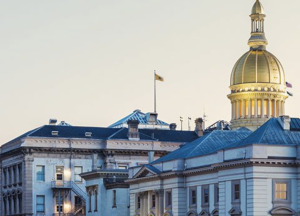 Generative AI (artificial intelligence) is not just the wave of the future, it is the wave of today. You hear about its uses in every sector of life. Government, which ideally should aim for peak efficiency, is using AI at very different levels. The state has taken initiative to utilize it, offering increasing opportunities for agencies to incorporate it into what they do. County and municipal governments, though dabbling, still seem to have a ways to go.
Generative AI (artificial intelligence) is not just the wave of the future, it is the wave of today. You hear about its uses in every sector of life. Government, which ideally should aim for peak efficiency, is using AI at very different levels. The state has taken initiative to utilize it, offering increasing opportunities for agencies to incorporate it into what they do. County and municipal governments, though dabbling, still seem to have a ways to go.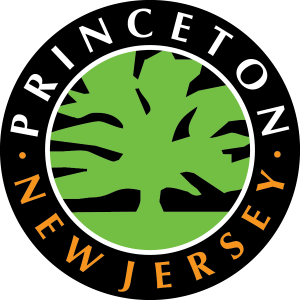 Princeton, for example, has barely integrated any uses of artificial intelligence into its operations and systems. The police department has explored opportunities but thus far has not found the tools available to be beneficial, especially with the additional loopholes of security protection needed for much of what they do. Ewing similarly has not shifted any core functions to AI, attempting some basic creative tasks at best, but often finding the human element is still very much essential. This seems to be the norm across New Jersey municipal governments.
Princeton, for example, has barely integrated any uses of artificial intelligence into its operations and systems. The police department has explored opportunities but thus far has not found the tools available to be beneficial, especially with the additional loopholes of security protection needed for much of what they do. Ewing similarly has not shifted any core functions to AI, attempting some basic creative tasks at best, but often finding the human element is still very much essential. This seems to be the norm across New Jersey municipal governments. Mt. Arlington is one of those towns jumping in, having already integrated an AI chatbot into its
Mt. Arlington is one of those towns jumping in, having already integrated an AI chatbot into its 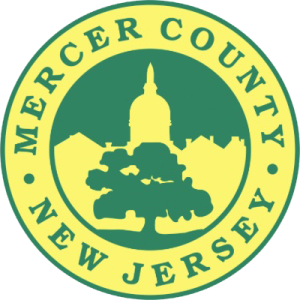 Mercer County is interested, but adoption is going slowly. The capital county has begun to utilize a system called CommsCoach QA, to assist with emergency communications. As calls come in via radio or phone, they are immediately evaluated by AI. Once flagged by the system, they are further reviewed by a human, but the technology enables the team to evaluate the quality of response, identify and reinforce the strengths, document performance trends and provide actionable feedback.
Mercer County is interested, but adoption is going slowly. The capital county has begun to utilize a system called CommsCoach QA, to assist with emergency communications. As calls come in via radio or phone, they are immediately evaluated by AI. Once flagged by the system, they are further reviewed by a human, but the technology enables the team to evaluate the quality of response, identify and reinforce the strengths, document performance trends and provide actionable feedback.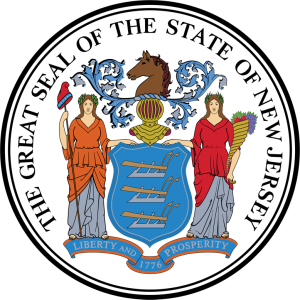 At the state level, there is still room to utilize its full potential, but the commitment and efforts are much further along. The New Jersey Artificial Intelligence Task Force was created in October 2023 soon followed by plans for the
At the state level, there is still room to utilize its full potential, but the commitment and efforts are much further along. The New Jersey Artificial Intelligence Task Force was created in October 2023 soon followed by plans for the 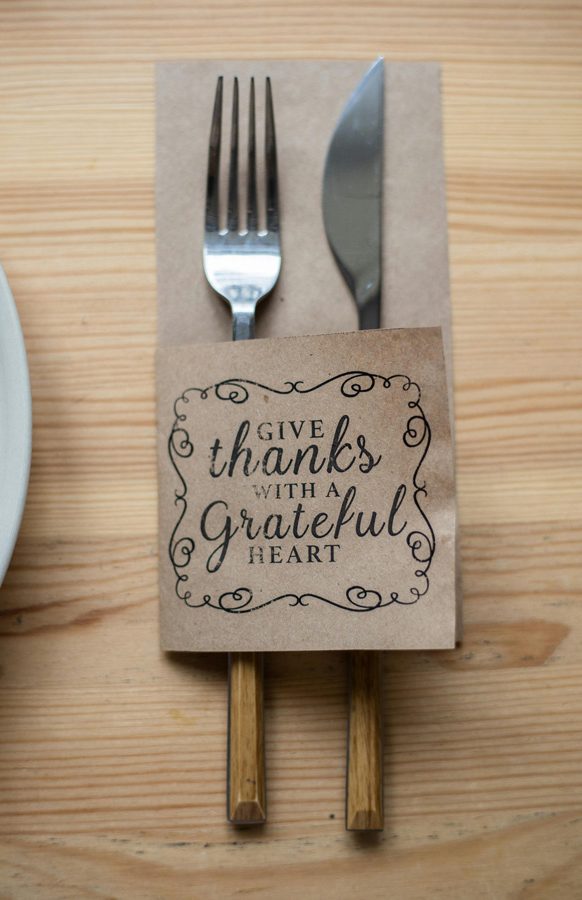 The winds are blowing; the air has turned crisp and Christmas music has even started blasting through intercom systems of your favorite stores. There’s no denying Thanksgiving is approaching. To help you shift into the season, read the November issue of Princeton Perspectives,
The winds are blowing; the air has turned crisp and Christmas music has even started blasting through intercom systems of your favorite stores. There’s no denying Thanksgiving is approaching. To help you shift into the season, read the November issue of Princeton Perspectives,  Most relate Thanksgiving to the first known holiday feast of the Pilgrims in Plymouth, MA in 1621. Their three-day harvest event was celebrated along with members of the Wampanoag tribe. While this feast was notable, tribes all around had been honoring their crops for years before Pilgrims made it famous – including native tribes right here in New Jersey. In fact, there is a lot about Thanksgiving that began in the Garden State.
Most relate Thanksgiving to the first known holiday feast of the Pilgrims in Plymouth, MA in 1621. Their three-day harvest event was celebrated along with members of the Wampanoag tribe. While this feast was notable, tribes all around had been honoring their crops for years before Pilgrims made it famous – including native tribes right here in New Jersey. In fact, there is a lot about Thanksgiving that began in the Garden State.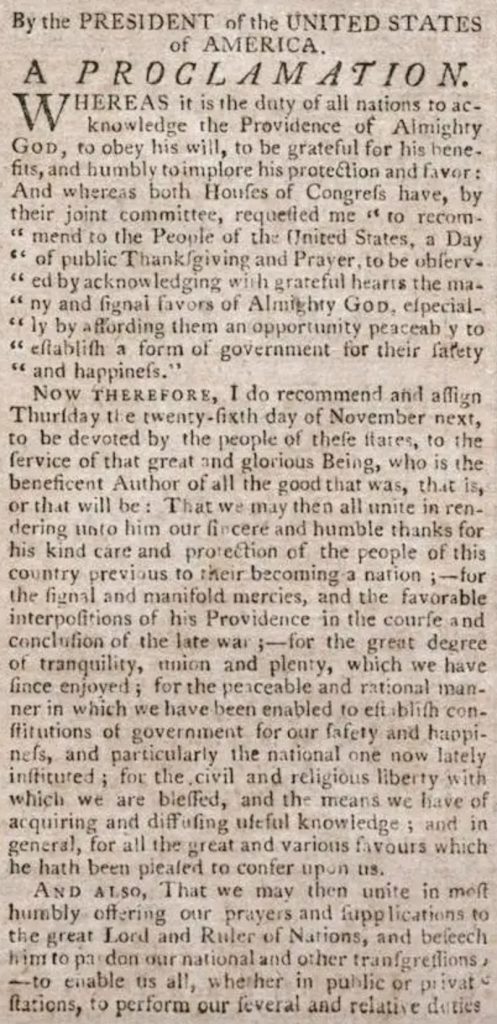
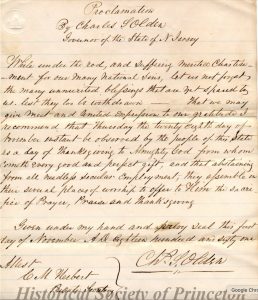
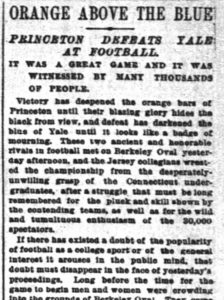
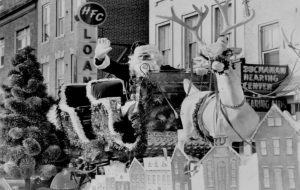 But the tradition of pigskin and turkey-day was not lost altogether. One annual meet-up began locally in Hamilton in 1959,
But the tradition of pigskin and turkey-day was not lost altogether. One annual meet-up began locally in Hamilton in 1959,  Another procession of sorts in the streets that has become synonymous with Thanksgiving is the Turkey Trot. The first known in Mercer County that continues today was the
Another procession of sorts in the streets that has become synonymous with Thanksgiving is the Turkey Trot. The first known in Mercer County that continues today was the 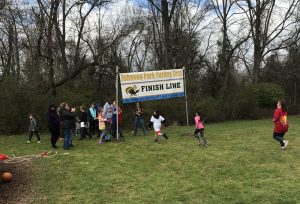 Some Turkey Trots bring together smaller communities and for nearly 20 years, Princeton’s
Some Turkey Trots bring together smaller communities and for nearly 20 years, Princeton’s 
 Did you sign up? Pick up your bib number? Plan your warm, but breathable, attire? Next week, thousands will gather across Mercer County to take part in a Turkey Trot. Are you ready?
Did you sign up? Pick up your bib number? Plan your warm, but breathable, attire? Next week, thousands will gather across Mercer County to take part in a Turkey Trot. Are you ready?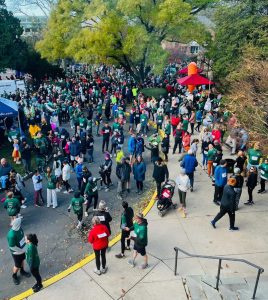 “I had recently moved from Kentucky, where I loved participating in a Thanksgiving morning run each year. When I couldn’t find a similar event in the Princeton area, I thought it might be a great way to bring people together—to build a little community spirit on Thanksgiving morning and do something good for others at the same time,” Rev. Jeanes recalls. “None of us could have imagined how quickly the Turkey Trot would grow, capturing the energy and enthusiasm of the wider Princeton community. The outpouring of support—from local runners, sponsors, and neighbors—has been both humbling and inspiring.”
“I had recently moved from Kentucky, where I loved participating in a Thanksgiving morning run each year. When I couldn’t find a similar event in the Princeton area, I thought it might be a great way to bring people together—to build a little community spirit on Thanksgiving morning and do something good for others at the same time,” Rev. Jeanes recalls. “None of us could have imagined how quickly the Turkey Trot would grow, capturing the energy and enthusiasm of the wider Princeton community. The outpouring of support—from local runners, sponsors, and neighbors—has been both humbling and inspiring.”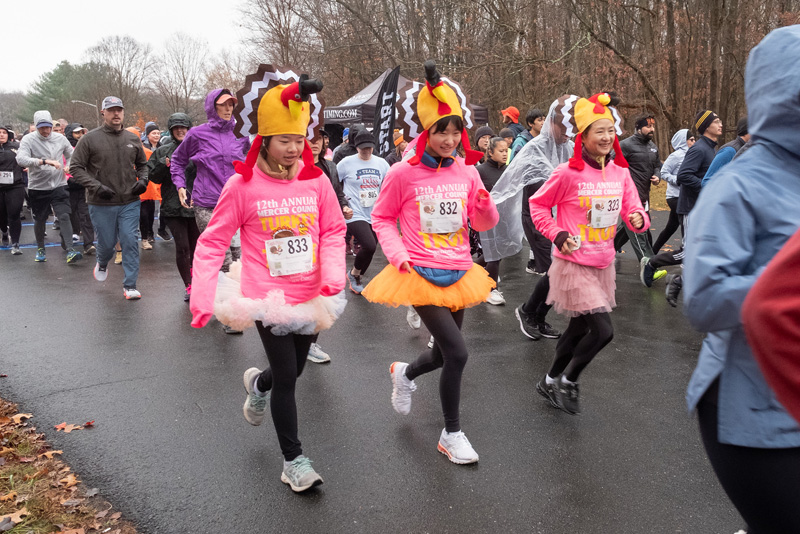 “It’s become a tradition for a lot of families, which is fun to see,” explains Sarah Kempson, a volunteer with the Mercer County Turkey Trot Race Team. “It’s such great energy, so much fun. Families all gather in the picnic area before the start of the race, and at the end of the race. People dress up in fun festive costumes. Teams that sign up are creative and fun. Howard Alter is DJ of the race every year and Steve Shueh, another managing partner, wears a turkey costume and goes along the race and cheers people on.”
“It’s become a tradition for a lot of families, which is fun to see,” explains Sarah Kempson, a volunteer with the Mercer County Turkey Trot Race Team. “It’s such great energy, so much fun. Families all gather in the picnic area before the start of the race, and at the end of the race. People dress up in fun festive costumes. Teams that sign up are creative and fun. Howard Alter is DJ of the race every year and Steve Shueh, another managing partner, wears a turkey costume and goes along the race and cheers people on.”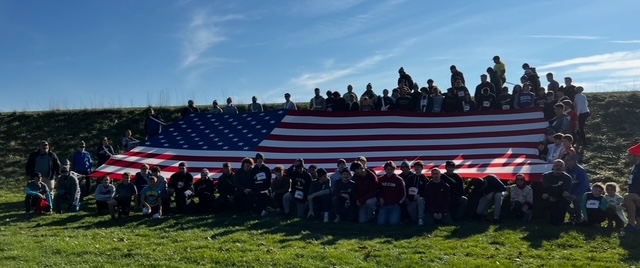 What started as a small fundraiser has truly developed into a community gathering with a run/walk component welcoming grandparents, children and everyone in between. With nearly 1,000 runners last year, it truly was a reunion. At the end of the race each year, everyone from Hopewell Wrestling – youth through alumni – gather for a group photograph.
What started as a small fundraiser has truly developed into a community gathering with a run/walk component welcoming grandparents, children and everyone in between. With nearly 1,000 runners last year, it truly was a reunion. At the end of the race each year, everyone from Hopewell Wrestling – youth through alumni – gather for a group photograph.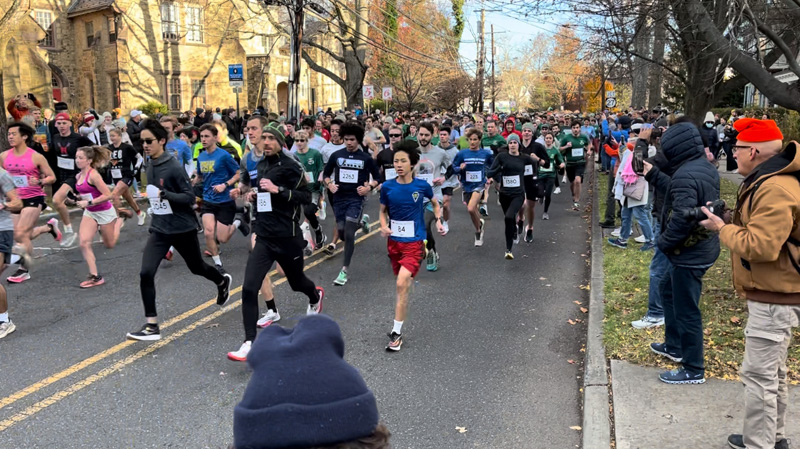 “What is difficult to put into words is the energy that is so palpable onsite in both the pre- and post-race gathering of runners and volunteers,” says Bill Hackett, Co-Director of Trinity Turkey Trot. “It is not just a race. It is an event that changes lives – for the participants and those who benefit from the important service provided by our supported charities.”
“What is difficult to put into words is the energy that is so palpable onsite in both the pre- and post-race gathering of runners and volunteers,” says Bill Hackett, Co-Director of Trinity Turkey Trot. “It is not just a race. It is an event that changes lives – for the participants and those who benefit from the important service provided by our supported charities.” Corporate sponsorships enable race proceeds to be donated. The more the races grow, the more they can provide. Solidifying these sponsors, arranging runner sign-ups, handing out bid numbers, coordinating with local police to secure the routes and more are often done by volunteers who have other day jobs. But, for many, it is a burden worth taking on.
Corporate sponsorships enable race proceeds to be donated. The more the races grow, the more they can provide. Solidifying these sponsors, arranging runner sign-ups, handing out bid numbers, coordinating with local police to secure the routes and more are often done by volunteers who have other day jobs. But, for many, it is a burden worth taking on. “Our Turkey Trot was founded primarily as a means to fund the needs of our wrestling community. An ancillary social benefit grew naturally from that. Connecting the different eras of our wrestling community, and our township, all together on the same day, has become a treasured asset and expectation of our race.”
“Our Turkey Trot was founded primarily as a means to fund the needs of our wrestling community. An ancillary social benefit grew naturally from that. Connecting the different eras of our wrestling community, and our township, all together on the same day, has become a treasured asset and expectation of our race.” As we do every October, Princeton Perspectives is providing you with information about every candidate on the ballot to help you vote informed in the upcoming General Election. There is a lot at stake, as a new governor is to be chosen, the entire Assembly is up for grabs, and many county and local leadership positions are on the table.
As we do every October, Princeton Perspectives is providing you with information about every candidate on the ballot to help you vote informed in the upcoming General Election. There is a lot at stake, as a new governor is to be chosen, the entire Assembly is up for grabs, and many county and local leadership positions are on the table. Are you inclined to
Are you inclined to  If you prefer to vote in person, what are your options? This year, in-person early voting begins on Saturday, October 25, 2025, and is available through Sunday, November 2, 2025. Polls will be open Monday–Saturday from 10:00 a.m. to 8:00 p.m. and Sunday from 10:00 a.m.to 6:00 p.m.
If you prefer to vote in person, what are your options? This year, in-person early voting begins on Saturday, October 25, 2025, and is available through Sunday, November 2, 2025. Polls will be open Monday–Saturday from 10:00 a.m. to 8:00 p.m. and Sunday from 10:00 a.m.to 6:00 p.m.














 Susan Kanter is running for her third term on the Board of Education, looking forward to what it will bring.
Susan Kanter is running for her third term on the Board of Education, looking forward to what it will bring. Our current approach to affordable housing is broken. Of course, we need affordable living options in New Jersey, but mandated housing construction in every municipality has resulted in residential overdevelopment in communities that have limited infrastructure, no mass transit, and very few, if any, low-to-moderate income job opportunities.
The current model is also gobbling up open space, chasing wildlife from its habitat, increasing pollution from more idling cars on already congested roads, leading to more local flooding from stormwater management issues, and driving up property taxes due to endless legal fees and additional local services.
That's why I support a regional approach that would allow for more local input, with an approach focused on driving population growth to transit hubs and urban centers, where self-sustaining local economies are desperately needed - including regional contribution agreements (i.e., RCAs) and quotas based on state Department of Labor statistics. The extent to which PILOTS fit into that approach would be a matter for local stakeholders to determine in the best interest of their community. I believe that approach must come via a real legislative solution - not a judge - and, if need be, a constitutional amendment.
Local infrastructure issues, like Princeton faces, are why I support impact fees on new development to ensure that when infrastructure improvements are necessitated by the development, the developer pays for it, not already overburdened taxpayers.
Our current approach to affordable housing is broken. Of course, we need affordable living options in New Jersey, but mandated housing construction in every municipality has resulted in residential overdevelopment in communities that have limited infrastructure, no mass transit, and very few, if any, low-to-moderate income job opportunities.
The current model is also gobbling up open space, chasing wildlife from its habitat, increasing pollution from more idling cars on already congested roads, leading to more local flooding from stormwater management issues, and driving up property taxes due to endless legal fees and additional local services.
That's why I support a regional approach that would allow for more local input, with an approach focused on driving population growth to transit hubs and urban centers, where self-sustaining local economies are desperately needed - including regional contribution agreements (i.e., RCAs) and quotas based on state Department of Labor statistics. The extent to which PILOTS fit into that approach would be a matter for local stakeholders to determine in the best interest of their community. I believe that approach must come via a real legislative solution - not a judge - and, if need be, a constitutional amendment.
Local infrastructure issues, like Princeton faces, are why I support impact fees on new development to ensure that when infrastructure improvements are necessitated by the development, the developer pays for it, not already overburdened taxpayers.  I support affordable housing, but I do not support state mandates, such as the PILOT agreement to negotiate with developers to build affordable housing. I do not support using tax dollars to achieve affordable housing. I just want people to have access to affordable housing, without having the taxpayers foot the bill. I support the building of smaller houses with no impact fees (taxes on smaller houses). I support working with the local governments to change the zoning laws to allow tiny homes and RVs, so that people can have affordable housing. I do believe that the presence of affordable housing would reduce the number of people leaving New Jersey, as well as homelessness. Abandoned residential and commercial buildings could be used to house the homeless.
I support affordable housing, but I do not support state mandates, such as the PILOT agreement to negotiate with developers to build affordable housing. I do not support using tax dollars to achieve affordable housing. I just want people to have access to affordable housing, without having the taxpayers foot the bill. I support the building of smaller houses with no impact fees (taxes on smaller houses). I support working with the local governments to change the zoning laws to allow tiny homes and RVs, so that people can have affordable housing. I do believe that the presence of affordable housing would reduce the number of people leaving New Jersey, as well as homelessness. Abandoned residential and commercial buildings could be used to house the homeless.  The SWP campaign is not centered on a better set of proposals for how to reform capitalism it is to change which class rules. No agreements including the PILOT agreement, other laws, or policies under the capitalist profit system can solve the housing crisis and homelessness. High rents and housing shortages are no accident. Landlords put a premium on building luxury apartments — which rake in more profits — rather than affordable decent housing that workers need. Only through the struggle to end the profit system can that be changed. Workers need to fight for higher wages and a massive government-funded public works program to build affordable housing and provide jobs for those who need them. Cost-of-living adjustments in all wage, pensions and benefit contracts so that workers are protected from rising prices.
The SWP campaign is not centered on a better set of proposals for how to reform capitalism it is to change which class rules. No agreements including the PILOT agreement, other laws, or policies under the capitalist profit system can solve the housing crisis and homelessness. High rents and housing shortages are no accident. Landlords put a premium on building luxury apartments — which rake in more profits — rather than affordable decent housing that workers need. Only through the struggle to end the profit system can that be changed. Workers need to fight for higher wages and a massive government-funded public works program to build affordable housing and provide jobs for those who need them. Cost-of-living adjustments in all wage, pensions and benefit contracts so that workers are protected from rising prices.  I am committed to lowering housing costs and working with our towns to expand housing opportunities that families, seniors, veterans, and young people can actually afford. PILOTs are an important tool for towns to meet the specific needs of their communities and to help their residents afford a home there. As governor, I will work collaboratively with municipalities to help lower housing costs by crafting further incentives and tools for towns to employ and making resources available to support municipal housing programs and projects.
As governor, I will expand existing first-generation and first-time homebuyer programs to cover a larger share of homebuyers’ down payments, which will expand access to homeownership and generational wealth to more families. Making housing more affordable in our state also includes working to expand access to starter homes and accessory dwelling units that are less expensive for families and address the “missing middle.” I will work collaboratively with local governments that seek to redevelop underused and neglected properties, and to create transit-oriented development, which will expand access to affordable housing options and generate local property tax revenues.
State government also needs to improve coordination and consistency across all state departments to streamline the state permitting process for housing. This will reduce construction delays and homebuilding costs, which will lower the cost of homes for working families.
I also will work with municipalities to identify ways that we can fairly and effectively address infrastructure impacts from new housing construction, such as sewer and water systems and roadways, which create additional local burdens.
I’ll crack down on predatory investors, negligent landlords, and deceptive lenders who illegally jack up prices, collude to rig rents above market levels, don’t take care of their buildings, and discriminate in the home mortgage and rental markets.
A critical way for the state to support more housing options that are affordable for families is by ending diversions from the Affordable Housing Trust Fund. This fund helps municipalities expand housing options that are affordable for families and lower costs in a way that works for their community, but the state largely uses it for other purposes right now. I’m committed to ending these diversions as governor.
I will also work with municipalities to make sure our families have access to a world-class education at the same time as they can afford to put a roof over their heads — families should not be forced to pick between the two. Central to this commitment is fully funding our schools at the state level. As governor, I will fully fund, stabilize, and modernize our school funding formula so our kids have access to programs that we know work, like high-impact tutoring and mental health services.
I am committed to lowering housing costs and working with our towns to expand housing opportunities that families, seniors, veterans, and young people can actually afford. PILOTs are an important tool for towns to meet the specific needs of their communities and to help their residents afford a home there. As governor, I will work collaboratively with municipalities to help lower housing costs by crafting further incentives and tools for towns to employ and making resources available to support municipal housing programs and projects.
As governor, I will expand existing first-generation and first-time homebuyer programs to cover a larger share of homebuyers’ down payments, which will expand access to homeownership and generational wealth to more families. Making housing more affordable in our state also includes working to expand access to starter homes and accessory dwelling units that are less expensive for families and address the “missing middle.” I will work collaboratively with local governments that seek to redevelop underused and neglected properties, and to create transit-oriented development, which will expand access to affordable housing options and generate local property tax revenues.
State government also needs to improve coordination and consistency across all state departments to streamline the state permitting process for housing. This will reduce construction delays and homebuilding costs, which will lower the cost of homes for working families.
I also will work with municipalities to identify ways that we can fairly and effectively address infrastructure impacts from new housing construction, such as sewer and water systems and roadways, which create additional local burdens.
I’ll crack down on predatory investors, negligent landlords, and deceptive lenders who illegally jack up prices, collude to rig rents above market levels, don’t take care of their buildings, and discriminate in the home mortgage and rental markets.
A critical way for the state to support more housing options that are affordable for families is by ending diversions from the Affordable Housing Trust Fund. This fund helps municipalities expand housing options that are affordable for families and lower costs in a way that works for their community, but the state largely uses it for other purposes right now. I’m committed to ending these diversions as governor.
I will also work with municipalities to make sure our families have access to a world-class education at the same time as they can afford to put a roof over their heads — families should not be forced to pick between the two. Central to this commitment is fully funding our schools at the state level. As governor, I will fully fund, stabilize, and modernize our school funding formula so our kids have access to programs that we know work, like high-impact tutoring and mental health services.